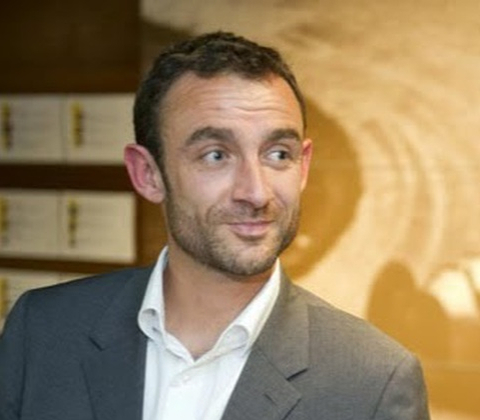News
blog / June 20, 2016
Craig Burchell, VP Xerox Corporation
Digital Transformation: How to ride the wave of change.
Craig Burchell, Vice President Xerox Corporation, Government Relations, Europe.
ING & Starfish “Digital Dialogues”, ING Bank, Brussels, 30 May, 2016.
Europe needs entrepreneurs but what Europe needs more is digital entrepreneurs. Our future requires higher productivity and competitiveness at the global level and going digital offers a powerful way to achieve this.
Digital Technologies are driving the 4th industrial revolution, a technological revolution that will fundamentally change the way we live, work, and relate to one another. In its scale, scope, and complexity, this transformation is unlike anything we have known before. The wave of transformation is bringing in new and exciting ways of thinking and doing that is opening our eyes to new and innovative solutions. Our task is to embrace digital transformation and harness its virtues to add value to the way we live, work and relate to one other. The question is: how can we collaborate to contribute to success?
Xerox has been an innovator in work flow productivity since creating the photocopier and today Xerox is a trusted partner of companies and governments in their journey to a digital transformation. Xerox engineers the flow of people goods and vehicles through Cities and is pioneering new fully integrated combinations of products and services that deliver mobility as a service. Xerox is No1 in transportation services to governments in 31 countries powered by Xerox Research & Innovation centre for Europe in Grenoble, France.
In today’s globalised world the digital transformation is essential for Europe’s competitive edge, and to deliver economic growth and jobs – though what those jobs, tasks, or work will look like in the future will be different due to other mega trends evolving. We all have an important role to play in driving this digital transformation.
The world is evolving exponentially which requires us to think beyond the linear ways of the past and we have the power of our educated minds and open culture to ride this wave of change with panache, but hold on tight, we are accelerating; increasingly, billions of people are being connected by mobile devices. Imagine these possibilities multiplied by emerging technologies in AI, robotics, IoT, nanotech, biotech and quantum computing.
What next for the Digital Economy? Firstly, there is no Digital economy. THE Economy IS digital. Digital is changing everything. The industrial age was about commoditization, the digital age is about customization. The next wave is digital customization & smart specialization with high value added combinations of goods and services. This is what will distinguish the EU from the RoW and enable exports, growth and prosperity.
We need to rethink many ways of thinking and working. Einstein said “We cannot solve problems with the same thinking we used when we created them”. So we will think differently about business models, and even the terminology of big and small companies: today SMEs are born digital and global, capable of reaching anyone in the world who is connected. They are “micro-MNCs” whereas macro-MNCs previously took years to develop internationally.
What are the top priorities?
- Coordination and mobilization of us all: Go digital to stay competitive for our collective wellbeing faced with evolution of globalization.
- Digital innovation hubs: support growth of SMEs and mid-caps like UK Catapult and German Industry 4.0.
- Leadership in developing the digital value chain
- Fill the skills gap digital literacy
- Smart and light regulation
How do we drive this change?
Accelerate your digital transformation: speed is of the essence to seize opportunities.
SMEs face some extra challenges with going digital. Whereas many larger companies have started collaborating with innovative start up there is a particular need to ensure that SMEs engage in this sort of collaboration
Magnitude matters: mobilizing investments to derive value from the data driven economy.
The need to manage and analyze large data volumes at speed, is increasing rapidly. Across all industries, data repositories so called data lakes are increasing but need to be multiplied to put an end to data silos and pull together increasingly incompatible data.
Digital skills upgrade.
A significant section of the current workforce is facing functional obsolesces. Digital reskilling for new and better jobs and the intelligent combination of automated tasks with human creativity will shape the future of work.
Accelerate the transition to the circular economy.
The classic linear growth model of the last 50 years is highly dependent on finite resources and thus exposed to resource volatility, limited gains in productivity and significant losses of value through waste. Remember we cannot solve problems using the thinking we used when we created them. The forward thinkers have already adopted digital transformation as a means to sustainable growth. The innovators capture value via what some call “owning” the interface to the customer and adding value to the offering to each one of them in a customized way and with smart specialization, often bringing in adjacencies to offer other connected services. Look at offering a portfolio of products / service combinations.
So….
- There is no Digital economy. THE Economy IS digital. Digital is the future.
- Remember Einstein - “We cannot solve problems with the same thinking we used when we created them”.
- Our future requires higher productivity and competitiveness at the global level.
- The top priorities include
- Coordination and mobilization of us all
- Leadership in developing the digital value chain
- Smart and light regulation
- Europe needs entrepreneurs but what Europe needs more is digital entrepreneurs.
- Accelerate your digital transformation: speed is of the essence to seize opportunities.
- Magnitude matters: mobilizing investments to derive value from data.
- Digital skills upgrade.
- Accelerate the transition to the circular economy.
- Value creation increasingly lies at the interface of data and user so the key is “owning” the interface to the customer
Look around you for opportunities to collaborate; create connections and partners. They can be your companions for the journey. Creative thinkers create the future and remember Jean Monnet: “No thought without action!” Good luck with your digital transformation.





